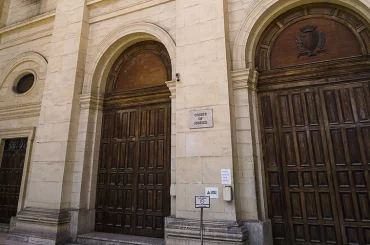The inability of the two main political parties to agree on a candidate for Standards Commissioner – only two years after the two parties’ made a deal over such appointments – says much about the state of politics in Malta.
The Venice Commission had been very critical of the parties’ deal, in which six laws were passed unanimously in parliament. The Commission at the time responded that “unanimity [in enacting the laws] in parliament is an ambivalent matter.”
“It could also be interpreted,” the Commission added, “as proving the closedness of the political system and the fact that common vested interests bind the majority and the opposition together.”
An increasing number of Maltese people are drawing similar conclusions, and becoming increasingly disillusioned with the main political parties, which are perceived as petty, partisan and self-serving.
The last general election saw a surge in ballot absenteeism – the largest ever – and that trend did not stop there: the number of alienated voters has continued to grow slowly and steadily since the election.
The PN is in worst shape – it is in disarray – but Labour has also been hemorrhaging support. Sources within Labour have told this website of internal surveys that show the slipping support, which appears to have been particularly steep in Gozo.
There is an old political maxim that holds that Gozo is a harbinger of wider shifts in political fortunes. And Labour has certainly taken the signs seriously: some months ago, the party held a private caucus in Gozo to discuss the reasons for declining support.
These dynamics show that voters are seeking new homes for their votes, and that the electoral landscape is set to become fragmented.
Yet the big question is whether there are any alternative parties who can inspire a swathe of voters wide enough to make a difference.
The most established third force is the ADPD, but there is no sign that it will attract voters in numbers large enough to elect any MPs to parliament without a national threshold quota. And even with a national quota, the ADPD would struggle to get even a token MP in its current form.
In branding (even the name is odd, unwieldy) as well as in political vision – or, as it is often called, the big idea – the party lacks a coherent or unified strategy that can bring electoral success. It is largely associated with narrow issues and narrow campaigning.
Even beyond the big idea, and beyond sophisticated branding, a third political formation could only grow into a reckonable force if it invests time and energy in really helping people.
The outlier Arnold Cassola also has a fighting chance. He has build a name for solo struggles in pursuit of justice and accountability – he is even challenging in the constitutional court (and out of pocket) the discriminatory law on cooption of women MPs by the two main parties. (It is surprising that Sandra Gauci of the ADPD did not challenge such a law.)
Yet despite these trends, without an effective third party that could break the mould, we are set to remain saddled with the two main parties. The main parties will continue losing support, but the dynamic will remain the same: a closed political system that offers little chance of meaningful change.
Sustain Analyses & Insight
Robustly researched and professionally delivered analyses and insight features on this website take much time, effort, and resources to produce. This website's donation setup itself is uniquely transparent, with targeted amounts – of just €50 every month for analyses – that allow tracking of donations in real time on the page. Contribute as little as €5.





